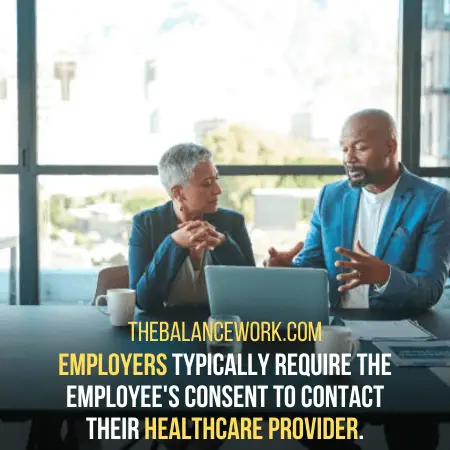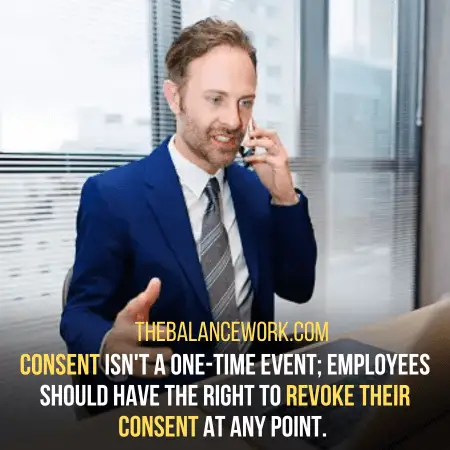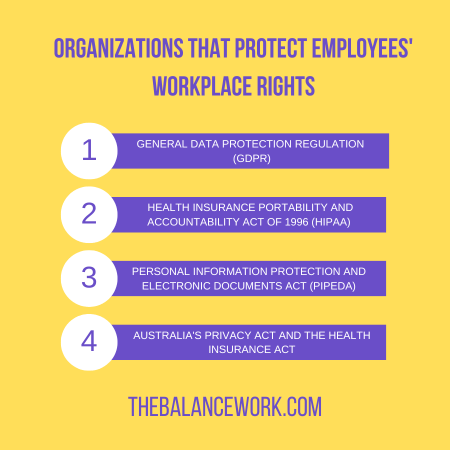Is It Legal For Your Employer To Call Your Doctor? Employers generally can’t contact an employee’s doctor without explicit consent.
While there are exceptions for workplace accommodations or medical leave, consent is typically required. Unauthorized contact can violate an employee’s medical privacy.
Is It Legal For Your Employer To Call Your Doctor?
Employees have the right to expect that their health information remains confidential.
Employers must obtain explicit consent before accessing or sharing any medical information.
Employee medical privacy is a critical aspect of workplace rights.
Governed by a complex web of laws and regulations, it is to protect individuals’ sensitive health information.
Understanding this legal framework is essential for employees and employers to ensure compliance and respect for privacy.
HIPAA (United States):
The Health Insurance Portability and Accountability Act of 1996 (HIPAA) is a landmark legislation in the United States.
It safeguards the privacy and security of health information.

HIPAA primarily pertains to healthcare providers, health plans, and clearinghouses.
Its privacy rule extends to employers offering health plans to their employees.
HIPAA limits how employers can access and use employees’ health information, requiring explicit authorization for disclosure.
GDPR (European Union):
The General Data Protection Regulation (GDPR) is a comprehensive data protection law.
It applies to all individuals within the European Union (EU) and also has implications for organizations outside the EU that process EU citizens’ data.
While not specific to medical data, GDPR includes health information as a special category of personal data, imposing strict requirements on its processing.
Employers need explicit consent to process employees’ health data and must implement adequate security measures.
Other Similar Legislation In Different Jurisdictions:
Many countries have enacted similar laws to protect medical privacy.
For example, Canada has the Personal Information Protection and Electronic Documents Act (PIPEDA) includes health information.
Australia’s Privacy Act and the Health Insurance Act also address medical data privacy.
These laws commonly emphasize consent, transparency, and secure health information storage and handling.
Employee Rights To Medical Privacy
Employee rights to medical privacy encompass the protection of personal health information.
Laws such as HIPAA and GDPR establish the legal foundation for safeguarding this data.
These rights ensure that individuals’ sensitive health data is handled ethically, responsibly, and in compliance with legal mandates.
Protection Of Personal Health Information:
Medical privacy laws aim to protect individuals’ personal health information from unauthorized access, use, and disclosure.
Employees have the right to expect their health information to remain confidential and only accessible to those with a legitimate need.
Consent And Authorization:
A cornerstone of medical privacy laws is the requirement for employees’ informed consent before their health information can be shared.
Consent should be explicit, well-informed, and obtained freely. Employers typically need an employee’s written consent to access their health information.
This applies to various scenarios, such as workplace accommodations or medical leave verification.
Medical privacy laws emphasize the importance of maintaining the confidentiality of employees’ health information while allowing for necessary and legal access.
These laws balance employers’ legitimate needs for certain medical information (such as for insurance purposes) and employees’ rights to privacy.
Compliance with these laws is crucial to prevent violations and ensure a respectful and ethical work environment.
6 Situations Where Employers Might Contact Doctors
While laws protect employee medical privacy, there are specific situations in which employers might need to contact an employee’s doctor.
These situations often revolve around ensuring workplace accommodations, verifying medical leave, or assessing an employee’s fitness for duty.
It’s important to note that in such cases, employers generally require explicit consent from the employee before contacting their doctor.
1. Workplace Accommodations:
When an employee requests a workplace accommodation due to a medical condition, employers might need to verify the need for the accommodation.
For instance, if an employee requests a modified work schedule due to a medical condition, the employer may need to confirm the medical basis.
2. Consent Requirement:
In these cases, employers typically require the employee’s consent to contact their healthcare provider.

This consent ensures the employee knows the information being shared and agrees to its disclosure.
Consent may be obtained in writing or through a formal process.
3. Balancing Privacy And Verification:
Employees are entitled to take medical leave for various reasons, such as illness, injury, or the need to care for a family member.
Employers have a legitimate interest in verifying the need for medical leave to manage staffing and workload effectively.
4. Use Of Healthcare Provider’s Notes:
Medical leave verification often involves the use of notes from healthcare providers. These notes certify the employee’s medical condition and the need for leave.
Employers generally don’t need to contact the healthcare provider directly.
5. Ensuring Employee’s Ability To Perform Job Duties:
Suppose an employee is returning from medical leave or an extended absence due to a health condition.
In that case, employers may want to ensure that the employee is physically and mentally able to perform their job duties safely and effectively.
6. Consent and Authorization
Ensuring the protection of employee medical privacy necessitates obtaining their informed and explicit consent before interacting with their healthcare provider.
Consent is crucial, preserving the balance between legitimate employer needs and individual rights.
Role Of Employee Consent:
Employee consent serves as a gateway to contacting their doctor.
It affirms that employees understand the purpose, scope, and implications of sharing their medical information.
Consent empowers employees to make informed decisions while ensuring their sensitive health data remains confidential.
Necessary Components Of Consent:
Consent should clearly define the scope of medical information to be shared.
Whether it’s specific diagnoses, treatment plans, or other relevant details, employees should comprehensively understand what data will be disclosed.
Purpose Of Disclosure:
Clearly articulating the purpose for which the medical information will be shared is crucial.
Employees should know how their medical data will be used for workplace accommodations, medical leave verification, or fitness for duty assessments.
Entities With Access:
Employees must be informed about who will access their medical information.
This might include HR personnel, managers, or other relevant individuals involved.
Consent Revocation And Limitations:
Consent isn’t a one-time event; employees should have the right to revoke their consent at any point.

Employers must respect this revocation promptly and halt ongoing interactions with the healthcare provider.
Additionally, consent has its limitations. It doesn’t provide blanket authorization to use an employee’s medical data beyond what’s explicitly stated.
Risks and Concerns of Contacting Doctors Without Consent
Undertaking interactions with an employee’s doctor without consent can lead to various risks and concerns, impacting both individuals and organizations.
1. Violation of Medical Privacy Rights:
Contacting an employee’s doctor without consent directly violates their medical privacy rights.
This can damage trust, lead to legal repercussions, and tarnish the organization’s reputation.
2. Trust and Employee-Employer Relationship:
Medical privacy violations erode the trust between employees and employers.

A breach of confidentiality can lead to feelings of betrayal and reluctance to share personal information in the future.
3. Potential for Discrimination:
Accessing an employee’s medical information without consent creates the potential for discrimination.
If personal health information is used inappropriately to make employment decisions, it can lead to claims of discrimination based on health status.
Conclusion:
Consent is the linchpin of interactions between employers and employees’ healthcare providers.
It ensures that medical privacy rights are respected, trust is preserved, and potential risks are mitigated.
Employers must recognize the significance of consent.
They must communicate clearly about its components and uphold the ethical responsibility to safeguard employee medical privacy.
Last Updated on 1 year by Talha Mughal
- Why Does My Boss Wink At Me? 6 Potential Reasons - October 5, 2023
- Is It Legal For Your Employer To Call Your Doctor? No, But… - October 4, 2023
- 12 Ways To Deal With A Low IQ Person - September 22, 2023